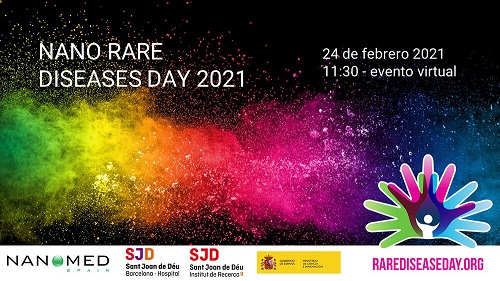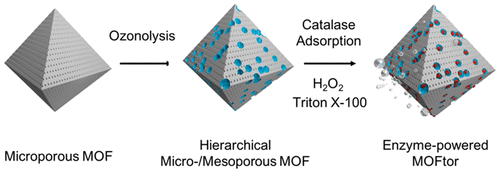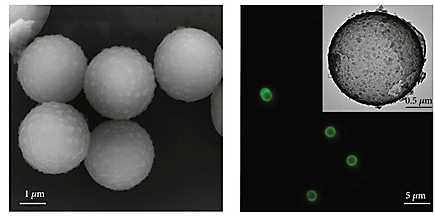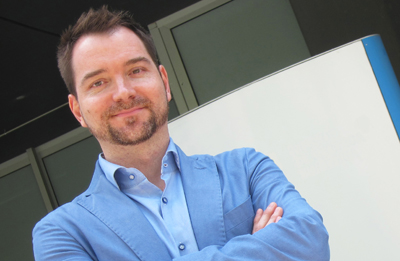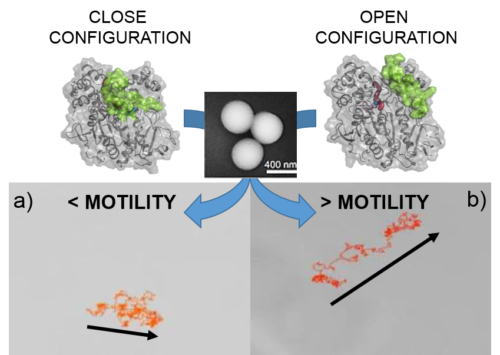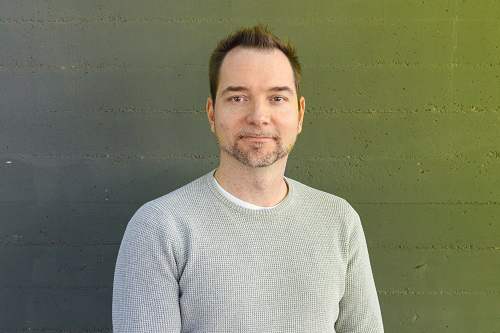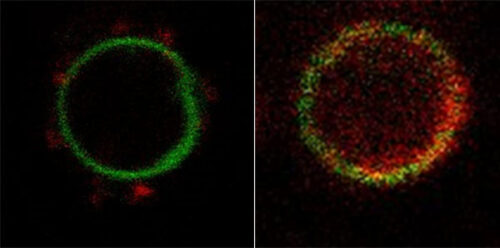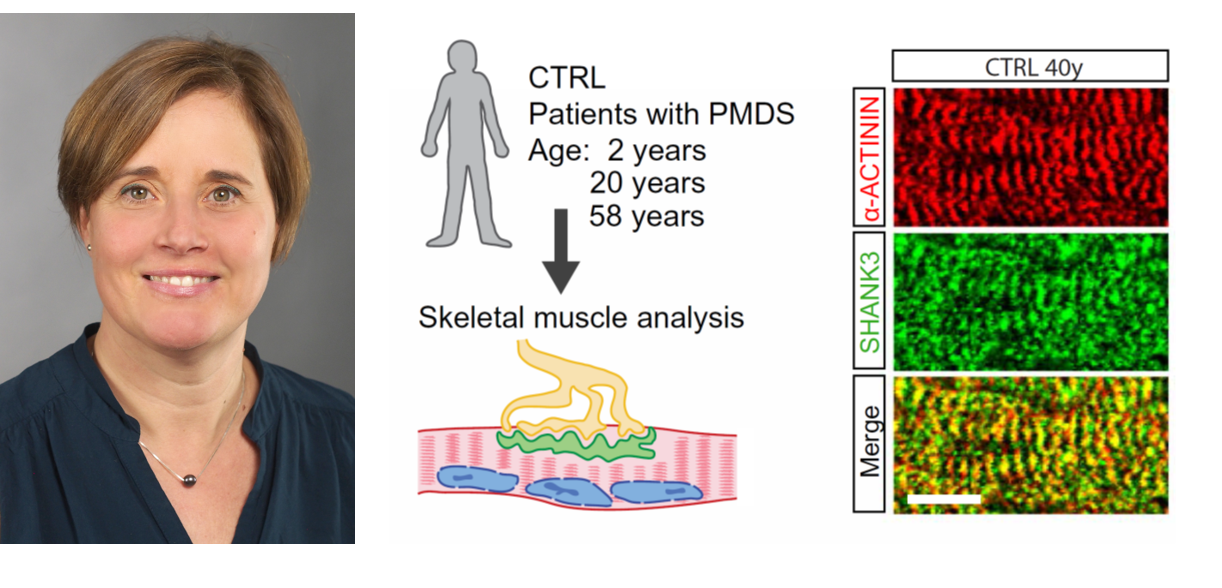Samuel Sanchez
Group leader
Nanomedicine against rare diseases joins forces
Nano Rare Diseases Day is an event organized for February 24th within the framework of the World Day for Minority Diseases, in which will be known the latest innovations in the field of Nanomedicine for the treatment and diagnosis of these diseases also known as rare or orphan.
Researchers develop enzyme-powered micromotors based on metal-organic porous materials
In a new article published in the prestigious Journal of the American Chemical Society, researchers describe how they successfully designed and fabricated bubble-propelled enzymatic micromotors built from a highly porous metal-organic framework (MOF). These new micromotors might lead to applications for drug delivery, and adsorption of pollutants.
Microrobots mobility and ionic strenght: theory and experiments reveal their relationship
The group of ICREA Professor Samuel Sánchez at IBEC leads a work revealing that the self-propelled movement of microrobots depends on the amount of salts, called ionic strength, present in the liquid they navigate in. By combining theoretical and experimental work, researchers develop a model explaining the relationship between ionic strenght and mobility.
The amazing journey of Samuel Sánchez on the radio
Samuel Sánchez, group leader at IBEC is interviewed in the radio program of RNE “Gente Despierta”
Controlling the speed of enzyme motors brings biomedical applications of nanorobots closer
A study by scientists at the Centro Nacional de Investigaciones Cardiovasculares (CNIC), the Universidad Complutense (UCM), Universidad de Girona (UdG), and the Institute for Bioengineering of Catalonia (IBEC), working together with other international centers, has overcome one of the key hurdles to the use of nanorobots powered by enzymes called lipases.
LipoBots in the media
Samuel Sánchez group leader at IBEC featured in diffrent media because of his latest publication about “LipoBots”.
LipoBots: robust nanomotors for biomedical applications developed with encapsulation technology
Researchers at the Institute for Bioengineering of Catalonia (IBEC) and the Catalan Institute of Nanoscience and Nanotechnology (ICN2) have developed a new type of encapsulated enzyme nanomotors.
The called LipoBots, which could be used for medical applications. LipoBots are capable to self-propulsate and to retain their enzymatic functionality in conditions similar to those of the human stomach.
Maria Demestre, a senior expert in neuromuscular connections and diseases, joins IBEC from Germany
Maria Demestre, a senior scientist and expert in defining molecular alterations and neurophysiological factors in neurons, and skeletal muscle and neuromuscular connections leading to diseases, joins IBEC within the Smart Nano-Bio-Devices group.
In a recent paper led by Ulm University in Germany and co-authored and co-led by Demestre, researchers describe the effect of SHANK3 protein on muscle tissues of patients with autism disorder.
New biodegradable nanomotors for biomedical applications
A paper published in Nano Letters describes the engineering and functionality of a biocompatible and biodegradable nanomotor. This hybrid structure, which is composed of an organic exterior, propels itself using inorganic nanoparticles acting as an engine that the researchers have synthesized inside the nanomotor.
The research was led by Jan van Hest and Laoi Abdelmohsen from the Institute of Complex Molecular Systems at TU/e in collaboration with Samuel Sánchez from the Institute for Bioengineering of Catalonia (IBEC) in Barcelona, as well as researchers based in China and the UK.

